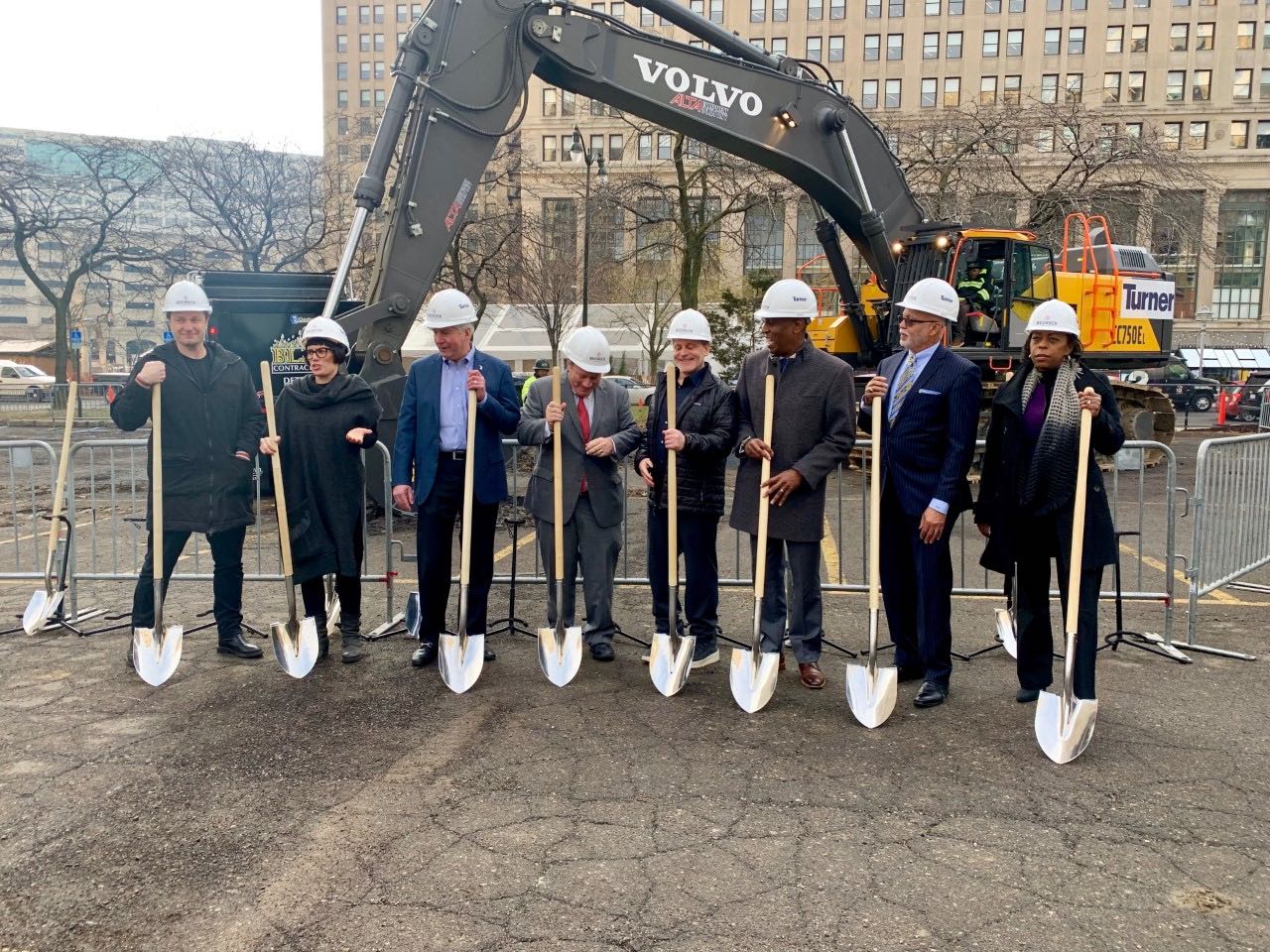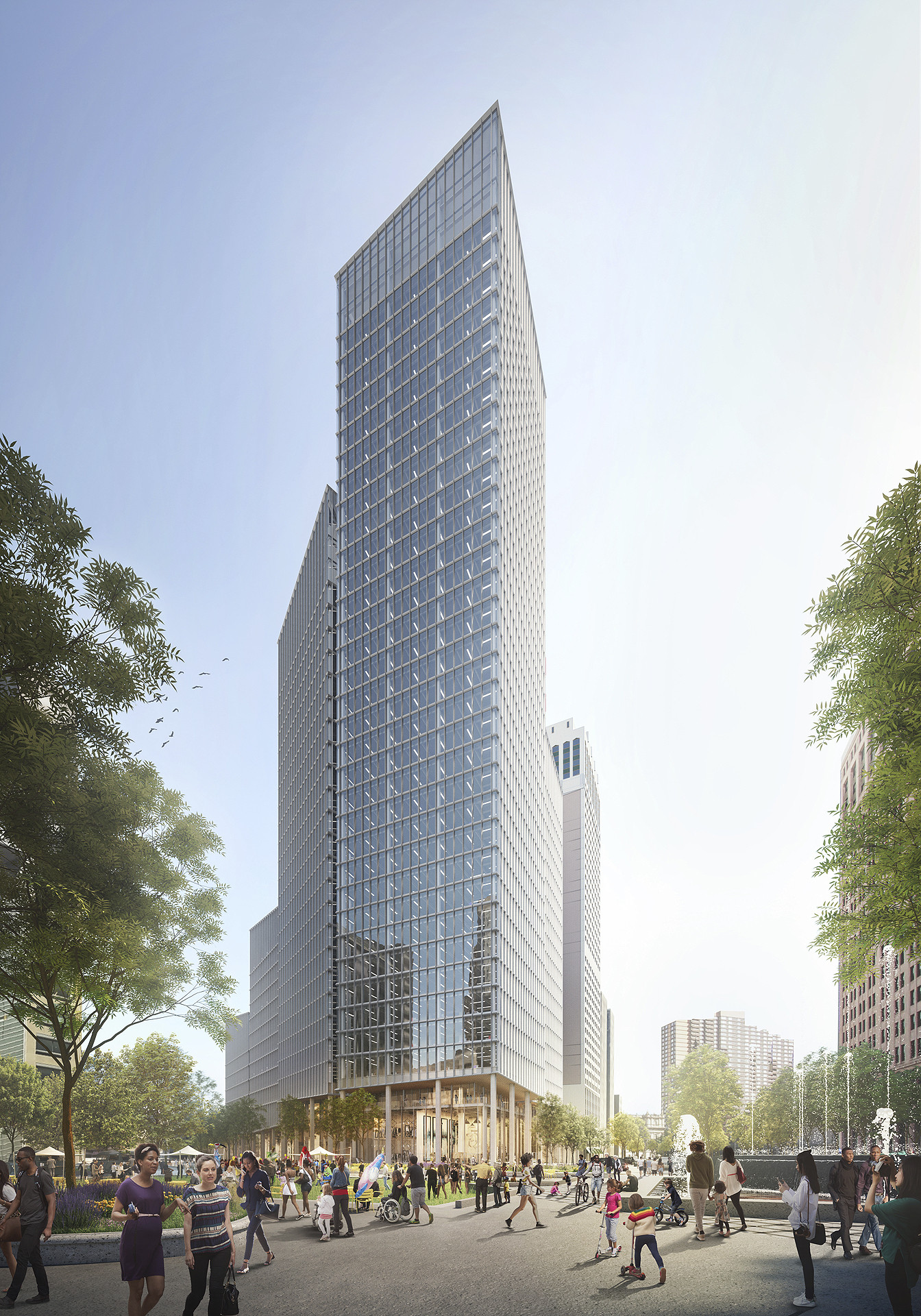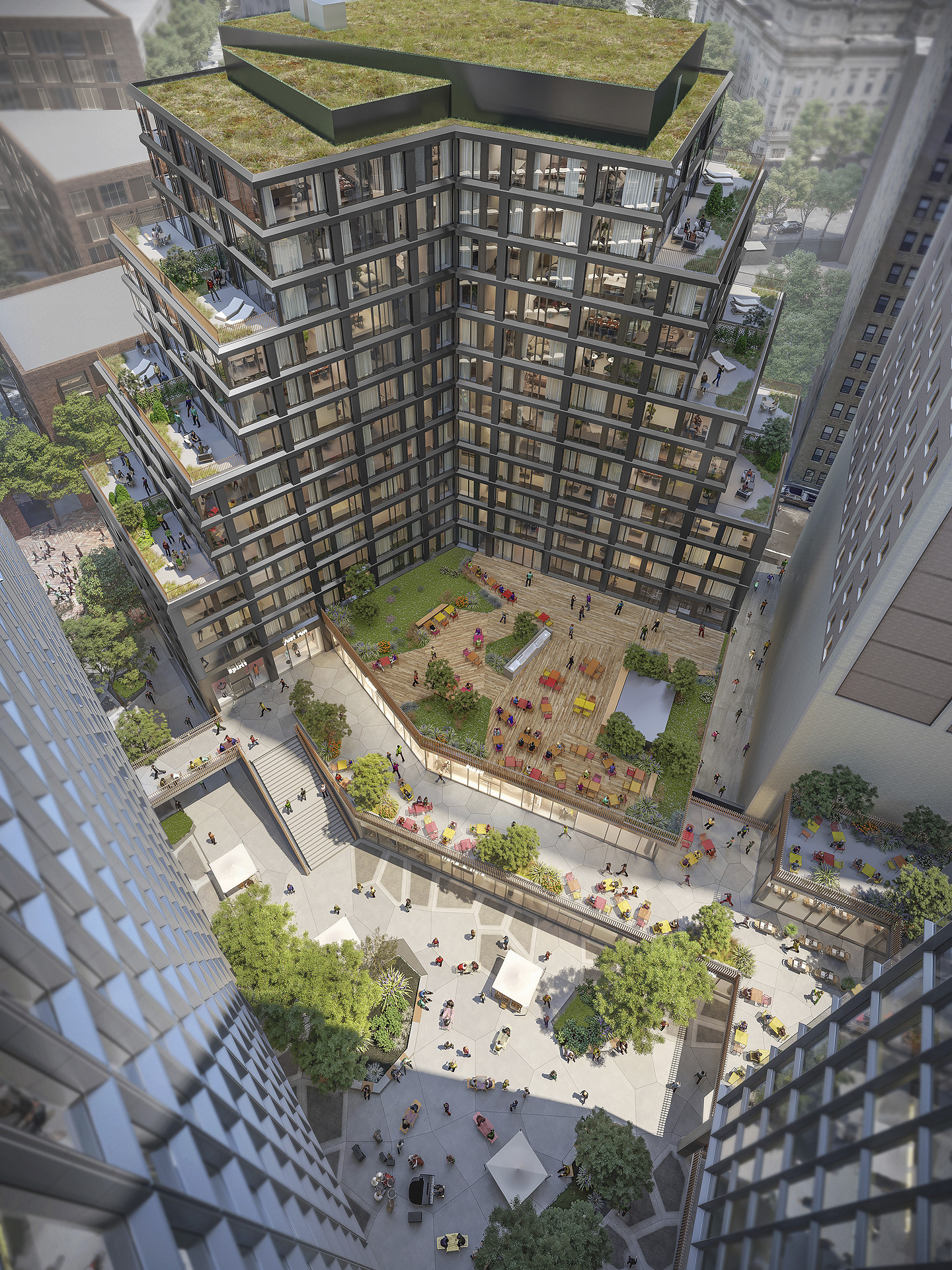
DETROIT – Dan Gilbert, Governor Rick Snyder, Detroit Mayor Mike Duggan, and other dignitaries rolled out the red carpet for the unveiling and groundbreaking of Bedrock’s new $830 million Monroe Blocks project Thursday morning in downtown. The 1.4 million square foot project will occupy two city blocks on the corners of Monroe and Campus Martius and Monroe and Randolph, bisected by Farmer street.
Once completed in 2022, Monroe Blocks will offer office, retail, residential, and open space to a site that has been vacant for over 40 years. The 35-story tower will be the first high-rise office tower to be built in downtown Detroit in a generation. Gilbert’s shiny new toy will add to the city’s ever-growing downtown area and skyline, but how will it benefit the residents of Detroit?
Will Detroiters be able to be a part of the construction process and what does “affordable” housing mean? In today’s Detroit, it means different things to different people.

Housing developers who receive a certain threshold of public subsidies or discounted city-owned land in Detroit are required to set aside at least 20 percent of their units for lower income residents, after the city council voted to approve two affordable housing ordinances last year.
Duggan said Detroit will not have a city built for wealthy people moving in, yet the Monroe Blocks, which will have an estimated 482 residential units, will not have affordable housing units.
“The way this building was built, there was no way to mix affordable in,” Duggan said at the groundbreaking event. “We had to have a solution and what we hammered out together, Bedrock, the City Council, and our administration, we said let’s build affordable housing in Capitol Park and Brush Park, preserve affordable housing in the New Center area, build and preserve 700 affordable housing units and have them all done before the first unit opens in the Monroe Blocks. And that’s what we did here today.”
Bedrock officials said they expect there to be 1,190 new residents to Monroe Blocks once completed, which would be 80 percent occupancy. Gilbert said they will start the leasing process in about 18 months.
“Residential, we all know there’s huge demand,” said Gilbert after the event was over. “It’s really all about the office tenants, and we have a lot of demand for that.”
The project is scheduled to bring 14,000 jobs to the city, majority of that coming from tenants occupying the office spaces. But the tower and other buildings have to be built first and everyone involved has put a huge emphasis on including Detroiters in the construction process.
In 2017, Bedrock announced four transformational projects that when complete will add more than 3.4 million square feet of office, residential, retail, and open space to Detroit’s Central Business District.
Together, the projects represent $2.1 billion in investment and will create up to 24,000 construction and permanent jobs. Monroe Blocks is one of the largest among the transformational developments, requiring a total of over 11,000 construction professionals to complete.
“As economic development continues to heat up downtown, Bedrock is committed to making sure Detroiters are poised to take advantage of the opportunities that arise as a result,” Gilbert added.
The Quicken Loans Community Fund and Bedrock were lead investors in Mayor Duggan’s effort to revitalize Breithaupt and Randolph Career and Technical schools. The Detroit Public Schools serve hundreds of youth and adults and provide the technology-based, hands-on education that expands career options.

In November, Bedrock, Barton Malow and Turner Construction Company, General Contractor for the project, hosted a massive Ready. Set. Build! career expo at Cobo Center, where over 3,000 job seekers learned about various trades through hands-on demonstrations and video presentations. Attendees met union apprenticeship school directors and interacted with contractors to learn the process for entering the construction industry.
“One of the most important things we can do in the middle of being excited about this impressive project, is to be sure that Detroiters get a shot at the jobs and careers that come along like this,” said Detroit Employment Solutions Corporation president and CEO Nicole Sherard-Freeman. “We’re doing that in three ways right now: all the work that has to be done on this project, 51 percent has to be done by Detroiters. Second, the city has invested $10 million into Randolph Training Center. And lastly, through Mayor Duggan’s Skilled Trades Employment program, three of metro Detroit’s largest skilled traded unions have all made a commitment to reserve at least 25 percent of all new apprenticeships for Detroiters.”
Careers in the construction industry are solid, good paying jobs, with entry-level jobs paying $11-13 an hour. Apprenticeship jobs start off at $13-18 an hour and can lead to a journeyman’s job paying $40 an hour. Sherard-Freeman urged qualified applicants to go to
Detroitatwork.com, visit any of the three career centers across the city or call 313-962-WORK.
Wayne County Executive Warren Evans, who is in charge of 42 other communities outside of Detroit’s limits, said the new project will be beneficial to the county as a whole.
“We will have a better Detroit when everyone is involved, and we will continue to make that commitment,” said Evans. “Not everyone will live in the core city, but everyone wants to see a strong metropolis with walkability, and the opportunity to do things that are important.”
The two blocks along Monroe Street that make up the development were known historically as Detroit’s first theater district, lined with Italianate stone and brick buildings built between 1852 and 1911. The site was razed in 1990 with the exception of the National Theater, which was designed by prolific Detroit architect Albert Kahn and opened as a vaudeville house in 1911.